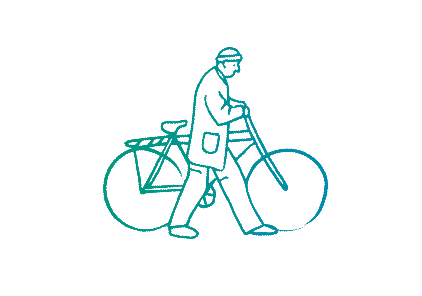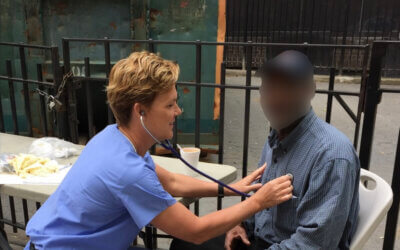Gratitude: Why it’s Important
How gratitude can make a difference for your physical and mental health.

Brother David Stendl-Rast, a Benedictine monk, is known as the grandfather of gratitude. He may have expressed the value of this mindset best.
“The root of joy is gratefulness. It is not the joy that makes us grateful, it is the gratitude that makes us joyful.”
We all experience highs and lows in life. They can shape our daily mood and motivation. It may be easier to focus on the negative, the worries, which have an impact on how we function throughout our life. On the other hand, there’s gratitude. Gratitude helps you see life as an adventure of opportunities. A cynic may call this mindset naïve but, is it really? Is it naïve to care for yourself? Read on if you’d like to learn why your body and mind are thankful when you’re grateful.
What is Gratitude?
Gratitude is often described as an emotion of thankfulness and recognition, an “expression for what one has.” You can express gratitude for someone, something and even someplace. How do you know if you are grateful for something? The American Psychological Association describes the feeling as a “sense of thankfulness and happiness in response to receiving a tangible benefit or fortunate happenstance.” You can feel tangible benefits from receiving a gift, the satisfaction of completing a project, and even just the company of a loved one. So, what benefits come from taking stock of these tangible benefits?
The Benefits for Body and Mind
Two thousand years ago, Roman philosopher Marcus Tullius Cicero said, “Gratitude is not only the greatest of the virtues, but the parent of all the others.” You could argue feelings such as hope, joy, respect and justice would be diminished without some element of gratitude. Research shows our physical and mental health could diminish without it as well.
- Reduced Depression. Studies from Mental Health First Aid found that a single act of thoughtful gratitude produces an immediate 10-percent increase in happiness, and a 35-percent reduction in depressive symptoms.
- Connectivity. Gratitude can help you feel more connected to others leading to increased happiness and decreased loneliness. This is particularly true when it comes to your romantic relationships. A 2021 study by Harvard Health found that couples who take time to express gratitude are more likely to have positive feelings toward their partner and feel more comfortable expressing concerns.
- Supports Heart Health. A 2019 review of research shows practicing gratitude can lower blood pressure. It can also help regulate your breathing.
- Improve self-esteem and self-confidence. When you are grateful for the positive aspects of your life, you are less likely to focus on the areas of your life you feel aren’t living up to your full potential. This can help you to feel more confident. Practicing gratitude can help you let go of the past, making it easier to move forward in your life, regardless of your challenges.
It’s clearly worthwhile to express gratitude in our lives, but how do we put it into practice? How do we cultivate this feeling?
Cultivating Gratitude
Research shows that practicing gratitude for 15 minutes each day can have lasting positive impacts on mental wellness and change in perspective. So, how can you turn this into a habit?
- Keep a gratitude journal. Establish a daily practice to write and keep a record of the things that bring you joy. Recording them and being able to re-read the good moments helps reinforce the ideas into our brain.
- Meditation. Meditate on your relationships with others using these three questions: What have I received from them? What have I given to them? And what troubles and difficulty have I caused?
- Appreciate your environment. Take time to notice what’s around you. Taking a walk or setting an atmosphere within your home through lighting and comfort items can help you tune into your awareness.
- Volunteer. Research shows taking time to help your community can result in feelings of happiness and life satisfaction.
As we enter 2024, take some time to reflect on your feelings of gratitude from the past year, and plan to incorporate gratitude into your day-to-day life.
Chapters Health System is committed to serving the needs of its patients, families, caregivers, health providers, partners and communities.
For more information, please call our helpful Chapters Health and HospiceHelp24® team at 1.866.204.8611 or Contact Us.
Keep Exploring
















